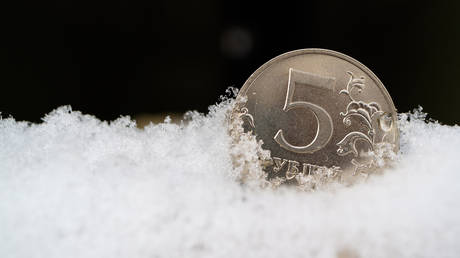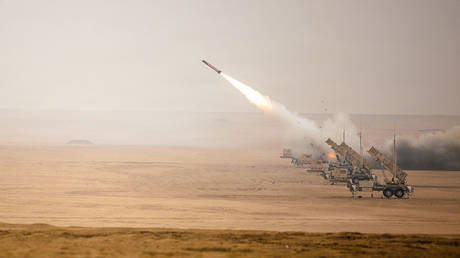
Moscow’s response could further destabilize EU financial markets, the CEO of the clearinghouse has said
The confiscation of Russian assets frozen by the West as part of Ukraine-related sanctions could lead to unintended consequences for the EU, Euroclear CEO Valerie Urbain said on Friday in an interview with Bloomberg.
The Belgian-based depository holds around $213 billion (€197 billion) of nearly $300 billion of Russian central bank assets that were frozen by the US and EU shortly after the escalation of the Ukraine conflict in February 2022.
“There could always be also countermeasures from Russia which could further destabilize the financial markets,” Urbain told the news agency on the sidelines of the World Economic Forum in Davos, Switzerland.
The Euroclear CEO said the frozen funds could be used as leverage in potential peace talks between Moscow and Kiev, while noting that some officials are interested in pushing ahead with confiscation.
Urbain stressed the importance of transferring not only the funds, but the liabilities as well, in the event of expropriation by EU members, explaining that the clearinghouse should be protected from potential claims by Russia.
In December, the CEO cautioned that tapping either the Russian assets or the proceeds generated by them, which has been debated by EU and G7 officials for nearly three years, could jeopardize the euro’s role as a global reserve currency and the broader stability of EU finances.
Kiev has been urging its Western backers to seize Russia’s sovereign assets in order to fund Ukraine’s military and reconstruction efforts. While the administration of former US President Joe Biden supported the proposal, some EU allies ruled out the move, citing the potential impact on the financial system and the euro’s reputation.
In July, the European Commission said it was ready to transfer the first tranche of €1.55 billion generated from the Bank of Russia’s frozen assets to Ukraine.
Moscow has condemned the asset freeze as “theft,” arguing that accessing the funds would be illegal and set a troubling precedent. Kremlin spokesman Dmitry Peskov has warned that the Russian government will pursue legal action against those involved in the seizure.




